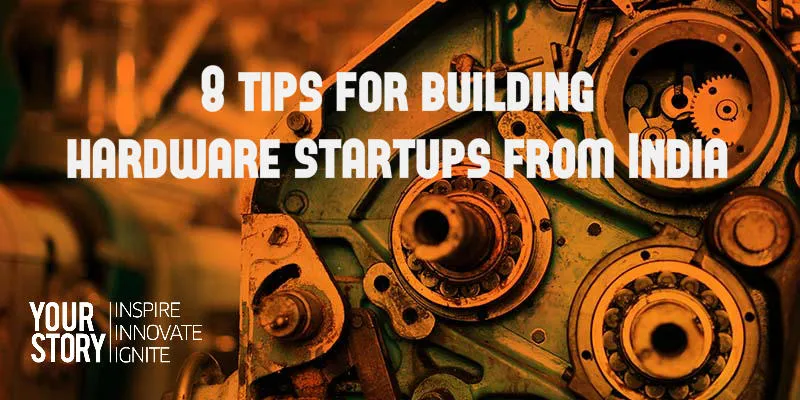8 tips for building hardware startups from India
YourStory conducted its first ever 'Hardware-only' meetup on June 20, 2014. The event saw a participation of more than 80 people and the gathering included startup founders, industrial designers, hardware geeks and enthusiasts. The meetup included presentations from Abheek Bose, founder, RobotsAlive; Eswar K Vikas, co-founder/CEO, Mukunda Foods; and Sudeep Sabat, co-founder/COO, Mukunda Foods.

Eshwar and Sudeep spoke about the Food automation industry at length and, Abheek gave the audience insights into running a robotics startup. Here are the key takeaways from the meetup on 'How to build hardware startups from India':
1. Simpler solutions work better for customers
"More often than not, the solutions customer need are simpler than what we geeks imagine it to be!" - Abheek Bose
The RobotsAlive team spent an year building a complex 6-axis robot, which was a great experience for them in terms of the learning. But the robot which ended up bringing in revenues was a simpler 1-axis system.
2. In hardware, DON'T release early, DON'T release often
The oft-repeated paradigm in the startup world is, "Release early, release often." According to Abheek, this doesn't work for hardware startups as the cost of release is too high. Hardware startups have to factor in the aspects of delivery, functionality, testing, transportation etc.
3. Factor in miscellaneous costs while pricing your product
Being hardcore engineers, hardware geeks often neglect a few aspects of business. In the initial days of RobotsAlive, while pricing the product, the team either did not include or miscalculated the costs of transportation, packaging, installation and insurance etc. This led to under-budgeting for most parts.
4. In the initial days, sell to a customer who is an end-user
Rather than looking for partner programs, hardware startups should look to close with those b2b customers who will use the product themselves.
"You may not be able to deliver the required product to the end customer if you have a partner layer in between because you may not have the exact requirements in place due to loss of information. Always source the SOW (Scope of Work) from the end user." - Abheek
5. Have loads of fun while building, because hardware is fun
"The biggest advantage of building a hardware company is that both the hardware systems and the humans that use it live in the same physical world. The impact of a working hardware product is much more significant when compared to software products." - Abheek
6. Tackle problems Made for India and build products for the world
"We saw the opportunity in manufacturing machines to bring in automation into the Indian food industry and take these machines to the world." - Eshwar K Vikas
7. Create an ecosystem around your product before you start manufacturing
"Bring mentors on board. Start talking to vendors beforehand." - Sudeep Sabat
8. Ensure that you are in constant touch with your employees
According to Sudeep, there is skilled manpower in the hardware industry, but they are not educated enough. Even a meager Rs 500 salary increase is enough to enr=tice them to other jobs. Hence, one needs to have a strong relationship with their employees in a hardware startup setting.
Watch this video of the presentations made by the speakers
Related reads:
Is 2014 the year hardware gets its sexy back?
Made in India, the world’s first automatic tabletop dosa-making machine – DosaMatic







